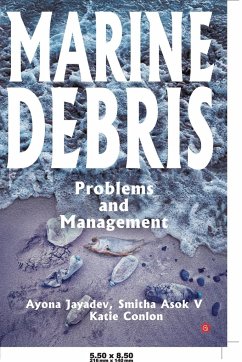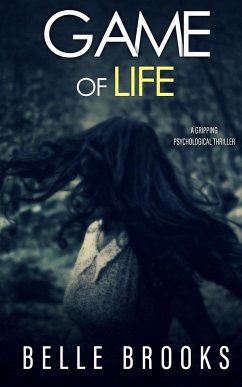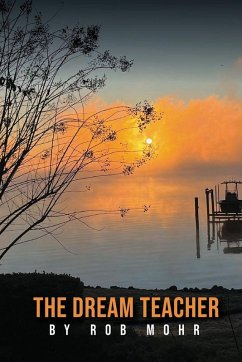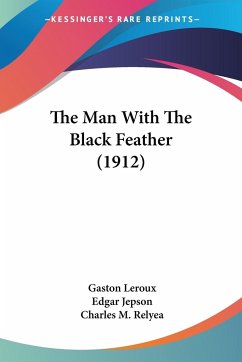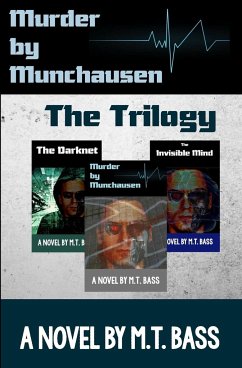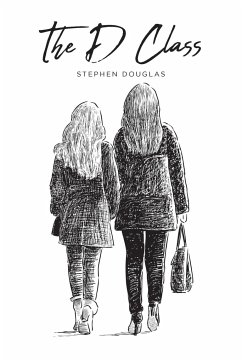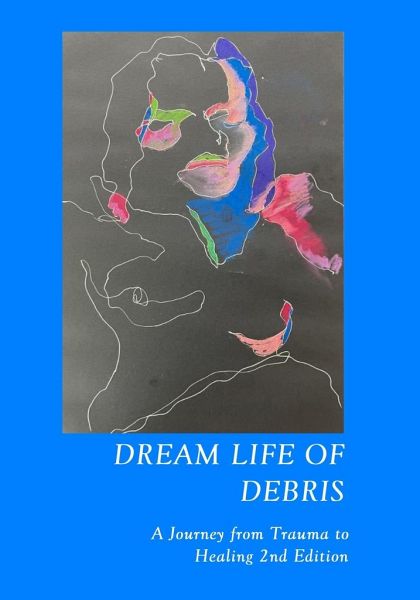
Dream Life of Debris
A Journey of Trauma and Healing
Versandkostenfrei!
Versandfertig in 1-2 Wochen
32,99 €
inkl. MwSt.

PAYBACK Punkte
16 °P sammeln!
This is a journey of pain, anger and forgiveness with clear love of the characters that inhabit the author. The book wrote itself as the author listened in amazed, frightened, disgusted and always cheering the heroes on. Following his mother death delivering him in an emergency caesarian section, Paul was happily fostered in a medical family in Devon UK. When aged 8 he was sent out to live with his biological father, a man he had never met. The father was lonely and needed a companion in Australia. Paul came to fulfil that role becoming a parentified child. The loss of his foster brothers and ...
This is a journey of pain, anger and forgiveness with clear love of the characters that inhabit the author. The book wrote itself as the author listened in amazed, frightened, disgusted and always cheering the heroes on. Following his mother death delivering him in an emergency caesarian section, Paul was happily fostered in a medical family in Devon UK. When aged 8 he was sent out to live with his biological father, a man he had never met. The father was lonely and needed a companion in Australia. Paul came to fulfil that role becoming a parentified child. The loss of his foster brothers and family, his friends, neighbourhood, his place in the world and his people became frozen in his heart, hidden in a pattern of psychological fragmentation. There was the part he left at home in England in a photograph on the grand piano, and the part that arrived in Australia as a ten pound pom. As a twelve-year-old Paul skips school often using made up illnesses. He loves to walk the train tracks of suburban Adelaide. One day as he's exploring with his faithful Jack Russell, hiding in the prickly bushes above a train station, he notices a body hanging in the station master's office. Later a group of men arrive and discovering the suicide, they panic. Paul hears them speaking to each other and recognises some names. He doesn't understand what he saw and heard, and runs from the scene. He buries the memory deep in his subconscious, choosing instead to dwell on dreams and stories he can write. He began to write a play using those men's names. It surprises his father that the child can write, but he takes no notice of it. A year later his father moves from Adelaide to Hobart with Paul aged 13. He was enrolled in an elite school, where an active pedophile network operated with impunity. A year later they move to Brisbane. At age 18 Paul abandons his father in Brisbane and returns to Adelaide to make a life for himself, driving a VW combi he had rebuilt, and decorated inside with pages from the Encyclopaedia Brittanica 1941 edition. As an adult, Paul personality is in pieces. He has many parts to his character. He experiences debilitating PTSD storms without knowing the cause. He becomes a playwright and actor, and uses his public persona to hide his past from himself, his family and his lover, a public prosecutor. He is married to a psychoanalytic child psychotherapist with two children, twins, all who who adore him. One of the twins is particularly clued in to Paul's disappearing acts. The other is a free spirit. His wife refuses to analyse him, as it only leads to trouble between them. One day on a weekend train trip with his lover, his memory of early traumatic events in Tasmania and Adelaide comes rushing back in a nightmare. His lover holds him, breathes him back to life, and enquires about what he saw in the dream. She senses a case and contacts the major crime unit of the Adelaide police. With the help of an investigator working for Australia's Child Abuse Royal Commission, Paul confronts the demons of his past. He relives memories of how the principal of his Tasmanian school took special care of him, loving him in a way that his distant father never had. But that love turned out to be far more sinister. Can Paul's wife and his lover work together, with the investigator to help him unravel the memories without any of the marriages or families or Paul dissolving? Can Paul reveal these memories to the investigative team in the train tunnels where he used to play? Can he expose his wounds to his wife and fix their marriage? Can his lover repair hers? Will remembering the secrets heal him or further fragment him? The novel is a form of autobiographical fiction, and demonstrates the author's own clinical and emotional experiences, placed in marriage and family stories wrapped in a crime mystery.




